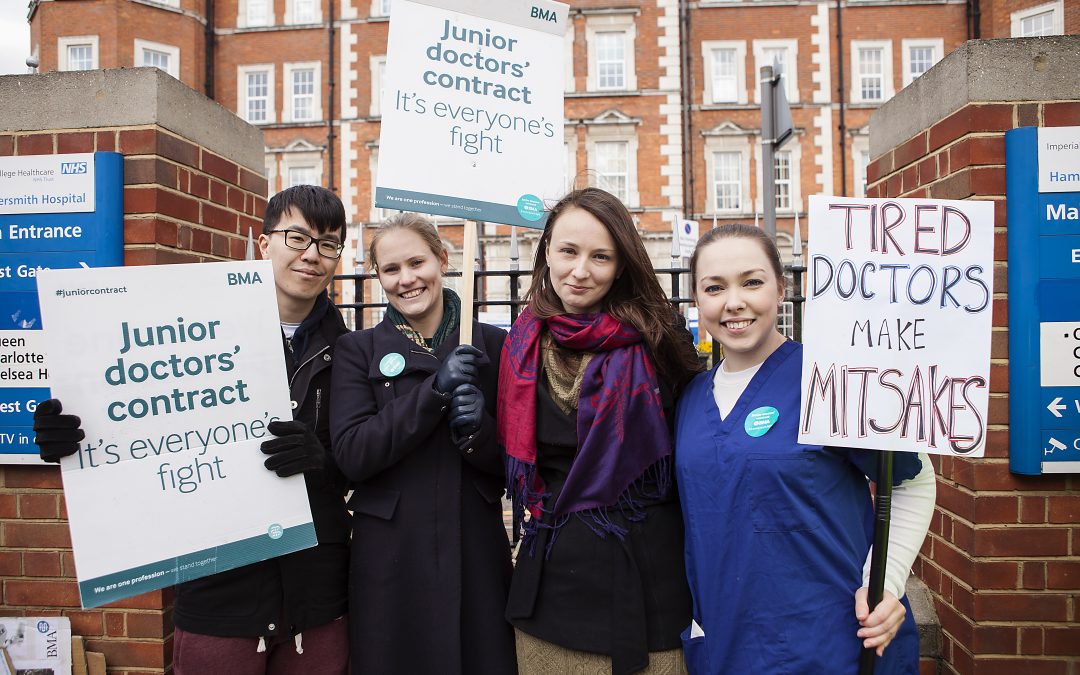Junior doctors in England have voted overwhelmingly for strike action as they campaign for increased pay. The 72-hour walkout, on 13–15 March, will include GP trainees, who make up 15% of all junior doctors in England. Therefore, GP practices should be prepared for potential disruption to services during this time.
The real-terms pay cuts and unsustainable working conditions that lie behind the wave of NHS strikes are also driving junior doctors to leave for better pay and quality of life in positions elsewhere. Given the GP workforce shortages, it is vital that primary care teams make every effort to support junior doctors in general practice to encourage increased recruitment and retention of GP trainees.
Employers’ responsibilities towards junior doctors in general practice
Many junior doctors choose to specialise in general practice and see it as a potentially rewarding, if challenging, career to pursue. However, the experiences they have as GP trainees will influence whether they continue to work as GPs for the NHS in the long-term. Their employers in general practice have an important role in helping them feel valued, supported, and safe as they undertake their training. In return, GP trainees can bring new skills and ideas to a practice and contribute to appointments and administrative work.
The British Medical Association (BMA) provides advice for practices in England that choose to employ GP trainees under the 2016 contract. In particular, practices and employers must be aware of their contractual obligations in work scheduling, exception reporting, and provision of guardians of safe working:
- Each trainee receives a generic work schedule, detailing work commitments, training objectives and a rota. The trainee and their clinical supervisor must personalise this to suit the trainee’s learning needs and the opportunities available, with ongoing review to ensure that it remains fit for purpose. Employers are also required to take account of reasonable requests to ensure the work schedule fits around the trainee’s life (e.g. caring commitments).
- GP specialty training in a general practice setting is subject to specific requirements with regards to work scheduling; the relevant guidelines, templates and examples are available from NHS Employers.
- Trainees must be provided with an electronic system for submission of exception reports and encouraged to use it to detail instances where their actual work and training differ from their work schedule.
- Clinical supervisors must review and discuss exception reports with the trainee to agree any actions, such as revising the work schedule and approving claims for additional pay or time off in lieu.
Guardians of safe working:
- Trainees must have access to a guardian of safe working who will oversee compliance with safeguards in the 2016 contract and be a champion of safe working hours for junior doctors.
- The guardian will receive a copy of exception reports and should be consulted about any concerns over working hours or training opportunities if the GP trainee and clinical supervisor cannot find a solution together.
- The guardian may levy a penalty fine if the trainee’s working hours breach certain limits, although this should never occur if work scheduling and exception reporting systems are applied correctly. If a fine is necessary, it should prompt an investigation and remedial action to ensure that the breach is not repeated.
- Information and resources for guardians are available from NHS Employers.
Supporting industrial action by junior doctors
In previous NHS strikes, the BMA has urged doctors to support their colleagues and advised members on how to show moral support without compromising their professional responsibilities. With the upcoming industrial action by junior doctors, practices employing GP trainees can demonstrate their support by understanding and upholding their junior colleagues’ employee rights.
The BMA guidance for junior doctors about strike action considers their employee rights including protection from unfair dismissal, allowances for annual leave, as well as the consequences for pay. Note that all GP trainees working under a contract with an NHS employer (single lead employer and/or GP practice) can join the strike, although the decision to take part is a personal choice.
Ahead of the industrial action, NHS trusts and employers will need to plan carefully to minimise disruption of essential services. In primary care, some patient appointments with GP trainees may need to be rearranged and certain clinics may have to be cancelled. However, the full impact of the strikes may be difficult to predict. It is important to know that junior doctors are not obliged to inform their NHS trust about their intention to participate in strikes and the BMA advises that to do so would undermine the action.
If you would like more advice about junior doctors’ rights during strike action or if you need medico-legal support regarding any other aspect of GP training, please get in touch with our expert team at Medical Defense Society.


Recent Comments